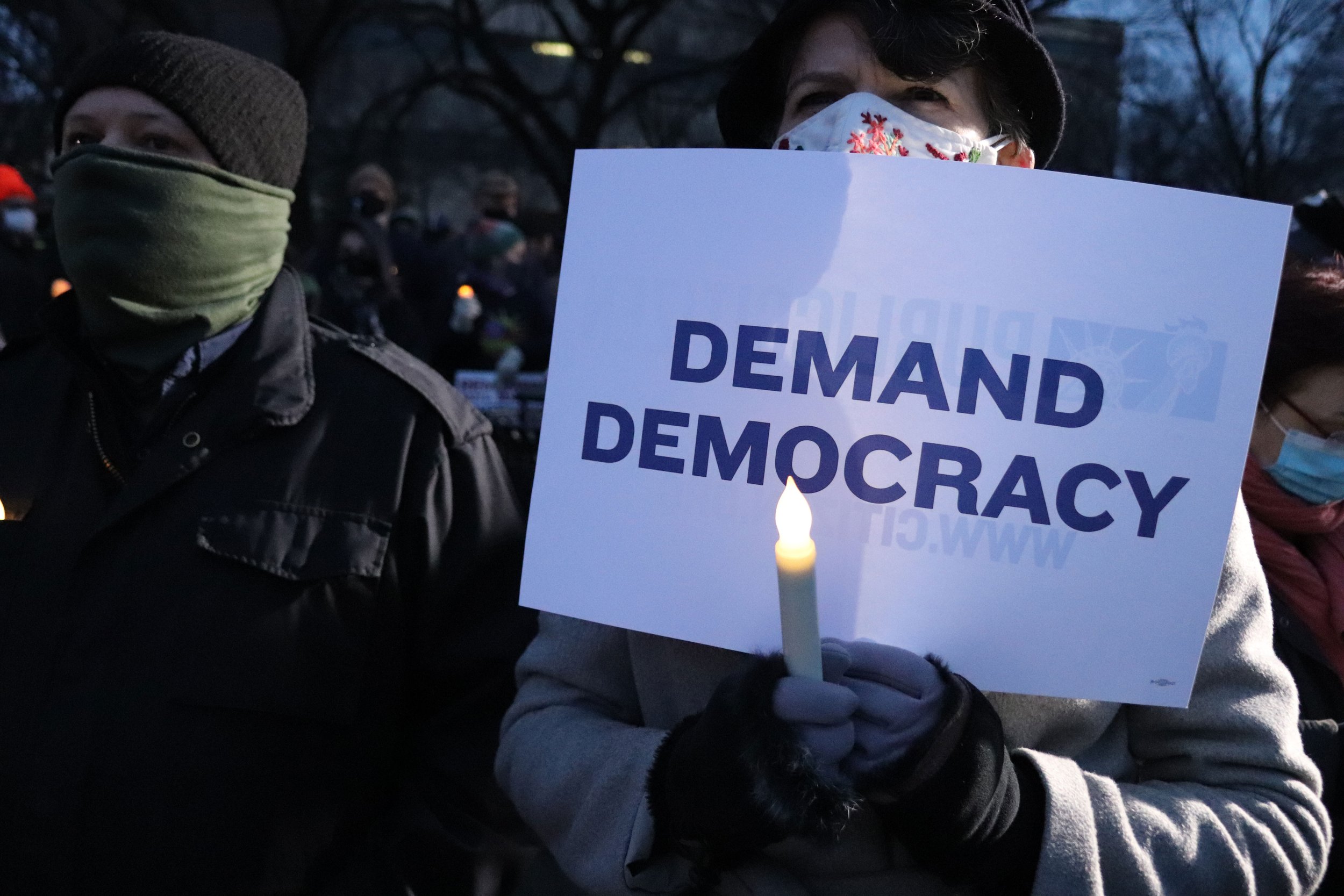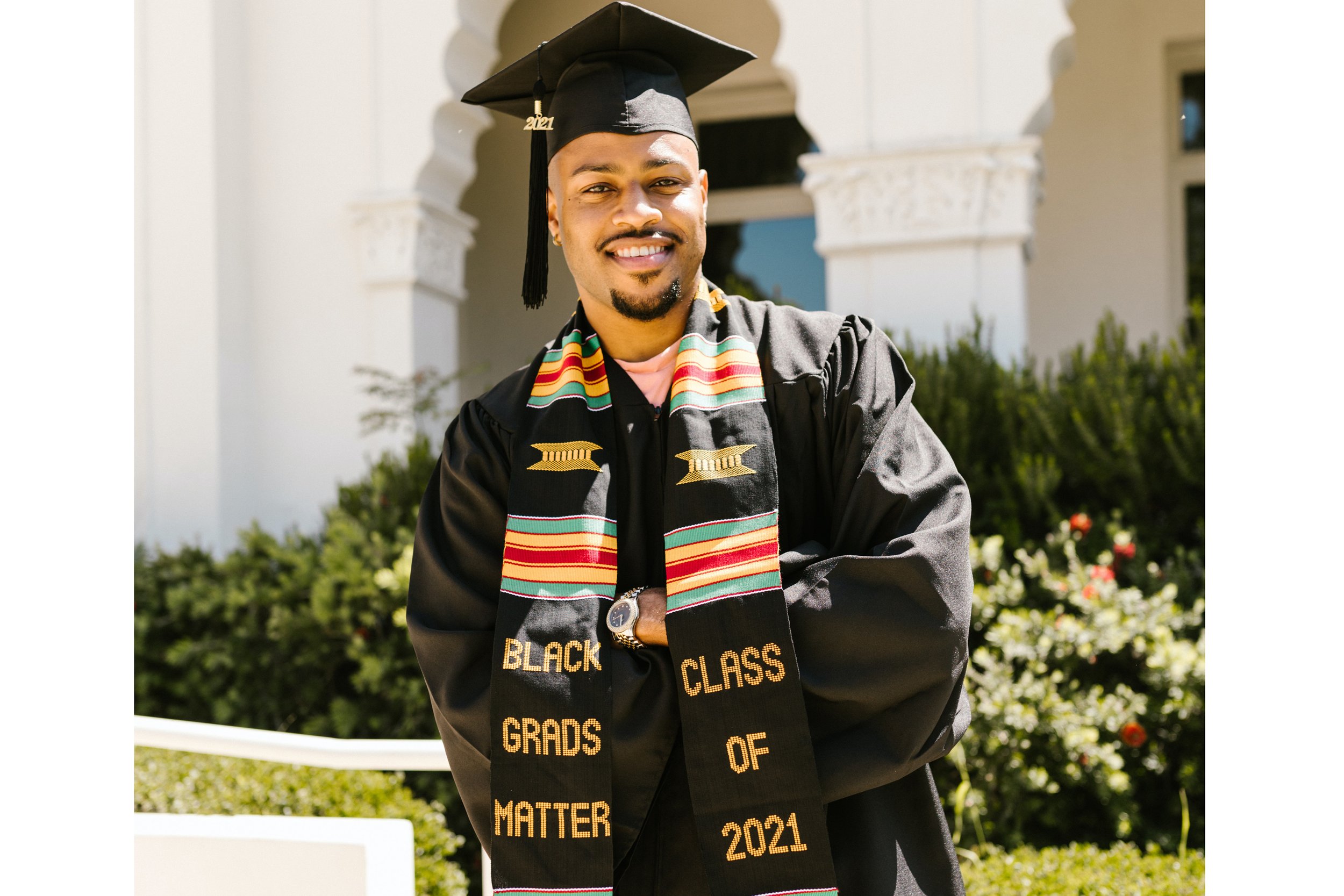No More Excuses for Sitting on the Sidelines
OPINION COMMENTARY:
The 2024 election will be consequential, and fortunately, it's easier and more important than ever to become involved. Rex VanMiddlesworth presents a number of ways to do so, from working the polls to joining campaigns.
Continuing the Conversation: COVID Underscores Homelessness as a Policy Choice
Homelessness in the US persists due to a worsening housing shortage, rising housing costs, increased immigration levels, and the expiration of eviction protections. Jeff Olivet, head of Biden’s US Interagency Council on Homelessness, sees homelessness as a policy choice and highlights its solvability when collective action is taken.
We Can’t Do It Without You: Multi-Stakeholders and the Fight Against Cybercrime
OPINION COMMENTARY:
Cybercrime is a global threat, demanding enhanced international cooperation and protection of human rights. The UN is now negotiating a new cybercrime treaty. Lead US negotiator, Ambassador (Ret.) Deborah McCarthy, argues for the involvement of multi-stakeholders – private sector, civil society, NGOs, and academia – to help member states in crafting and implementing the treaty to more effectively combat global cybercrime while safeguarding freedoms.
Unlocking Success: Key Lessons from Academia-Government Collaborations in Advancing Public Policy
Collaboration between academics and government agencies is essential for advancing our understanding of public policy issues. Noelwah Netusil and Marie Walkiewicz describe how to overcome barriers that can hinder these efforts and limit their effectiveness.
Shaping Corporate Responsibility from the UN Guiding Principles: New Legislation in Human Rights and Supply Chain Management
As consumers, we often assume products are ethically sourced, but human rights violations persist in transnational corporations' supply chains. Caroline Rees, alongside Professor John Ruggie, championed the UN Guiding Principles on Business and Human Rights, laying the foundation for global legal frameworks to hold corporations accountable for human rights violations throughout their supply chains.
Democracy at a Crossroads: Trends, Threats, and Backsliding – Exploring Structural Solutions
Democracy is under threat in the United States and around the world. Pippa Norris identifies the causes of democratic backsliding worldwide and proposes actionable ways to address these challenges and revitalize democratic governance.
Kidney Transplantation for Undocumented Immigrants: Time To Find a Solution
OPINION COMMENTARY:
Approximately 3% of deceased undocumented immigrants donate kidneys, yet only 0.2% receive kidney transplants. Dr. Joel Adler highlights this stark disparity and calls for a reexamination of the organ transplant system, advocating for eligibility based on fairness and medical need.
The Moral and Economic Answer to NYC’s Homelessness Isn’t Shelter, It’s Housing
The surge in New York City's homeless population, exacerbated by the expiration of pandemic-related measures, poses a critical challenge, with numbers reaching unprecedented levels. Christine Quinn urges upholding the "right to shelter," faster transitions to permanent housing for cost savings, and collaboration to address the multifaceted crisis.
Can AI Be Fair and Unbiased?
OPINION COMMENTARY:
Artificial Intelligence seems to be everywhere, from the agenda of world leaders to the limited series-style boardroom drama at OpenAI. Harvard Fellow, Paulo Carvão, discusses the challenges and importance of fair algorithms to ensure responsible and unbiased AI use.
Empowering Drivers: Tech Tools for Safer Traffic Stops
OPINION COMMENTARY:
If you get pulled over, chances are you won't recall your rights due to the stress of dealing with the police. Anthony J. Mohr proposes a way to provide a rapid review of the dos and don'ts during traffic stops, potentially saving lives.
Negotiating Peace: Lessons from Colombia´s Historic Peace Accord
The agreement between the Colombian government and the FARC (Revolutionary Armed Forces of Colombia) exemplifies purposeful, multi-year negotiations where incremental alignment led to peace. Former High Commissioner of Peace during the Santos Presidency, Sergio Jaramillo, shares the highs and lows, along with important lessons from the negotiation process that ultimately ended the armed conflict.
The Social Impact of Parking Your Car
Parking your car has significant social implications that few of us consider. Henry Grabar discusses his latest book, Paved Paradise, where he describes the societal and economic impact of our parking policies, which encompass fines, valets, garages, permits, and more.
Rapid Development of New and Affordable Medical Treatments
Did you know that there exist inexpensive generic drugs and supplements that might be effective as novel treatments for many diseases? Yet, pharmaceutical companies lack financial incentives to develop them. Could the creation of a federal agency designed to fund and oversee such efforts lead to new affordable treatments for unmet medical needs?
Artificial Intelligence and the Path Forward for Technology Policy
Chris Lewis, CEO of Public Knowledge, answers questions from 2019 ALI Fellow Lisa Macpherson about the current public fascination with generative artificial intelligence, the policy solutions we really need for AI, and the regulation for digital technology that’s way overdue.
Democracy and “We the People” — How Responsible Citizens and Bold Ideas Can Bring about a Brighter Democratic Future
There is significant concern about threats to democracy and the potential for an increasing move toward authoritarianism around the world. Archon Fung, Director of Harvard’s Ash Center for Democratic Governance and Innovation, is optimistic about the future of democracy and believes there is much individual citizens can do to assure that democracy remains healthy and vital.
SCOTUS Opinions on Student Admissions and Debt Harm Our Economy
OPINION COMMENTARY:
Achieving racial equity has gone beyond a moral imperative to become an economic imperative for this nation. Peter Williams explains how the Supreme Court’s decisions on affirmative action and student loan debt makes the problem worse.
It Takes A Village: A Multi-Stakeholder Approach to Solving Homelessness in America
OPINION COMMENTARY:
To combat the homeless crisis in America, bureaucratic obstacles that hinder those in need must be overcome. Harvard ALI Fellows Melinda Giovengo and Betsy Schwartz critically examine HUD's Homeless Emergency Assistance and Rapid Transition to Housing (HEARTH) Act and showcase how the Coalition for the Homeless of Houston, Texas has successfully implemented a multi-stakeholder approach.
What Now? HBCUs Are Ready to Respond to the Supreme Court's Decision on Affirmative Action
OPINION COMMENTARY:
When the doors of college were reserved for whites only, Historically Black Colleges and Universities (HBCUs) gave African Americans the education they deserved and the strength to rise above bigotry. In the wake of the Supreme Court’s decisions that throttle affirmative action, 2021 Harvard ALI Fellow Terry Edmonds reminds us of the role HBCUs played in the past and the expanded role they may play now.
Book Review: The Big Myth — How American Business Taught Us to Loathe Government and Love the Free Market
The Big Myth, by Naomi Oreskes and Erik Conway, makes a compelling and well documented case that under the guise of protecting individual freedom, corporations and influential individuals organized to resist efforts to regulate industry. Oreskes and Conway peel away the cloak to expose concerted efforts across broad spectrums of society to propagandize against government efforts to protect the common good, to a point where any government intervention into the marketplace is labeled anti-capitalist. The book is not an assault on capitalism, but an assault on the myth that equates capitalism with freedom.
Anniversary of Dobbs v. Jackson – Womens’ Loss of Reproductive Healthcare – From Crisis to Action: Innovative Strategies for Ensuring Access to Healthcare
This week marks the one-year anniversary of the Supreme Court's decision in Dobbs v. Jackson Women's Health Organization, which overturned Roe v. Wade and Planned Parenthood v. Casey. The decision has had a devastating impact on women's health in the U.S. Cecile Richards, a national leader for women’s rights and social and economic justice and former President of Planned Parenthood Federation of America and Planned Parenthood Action Fund for 12 years, reflects on the decision, its impact, and an urgent path forward.




















